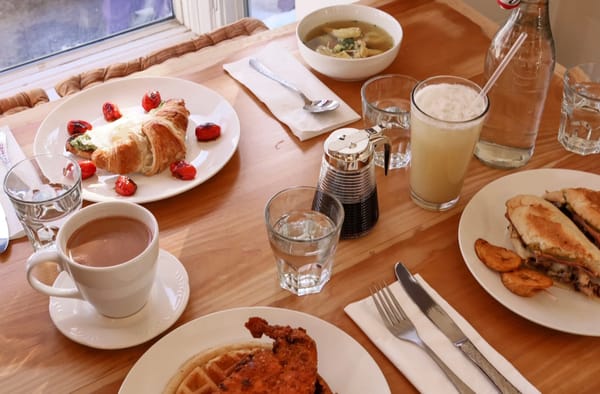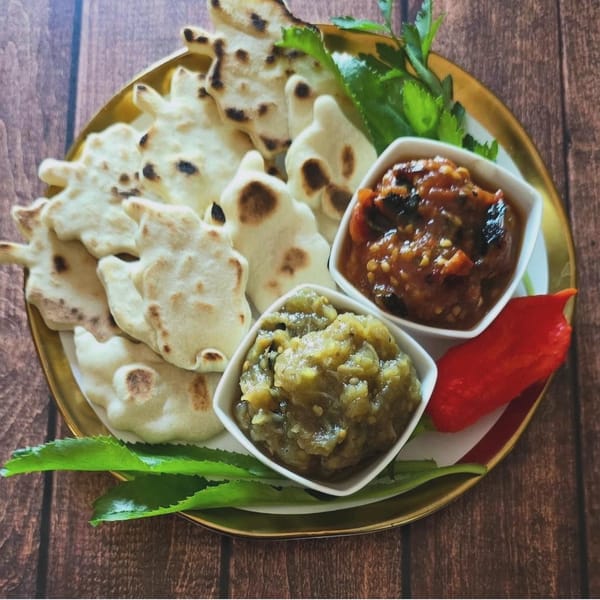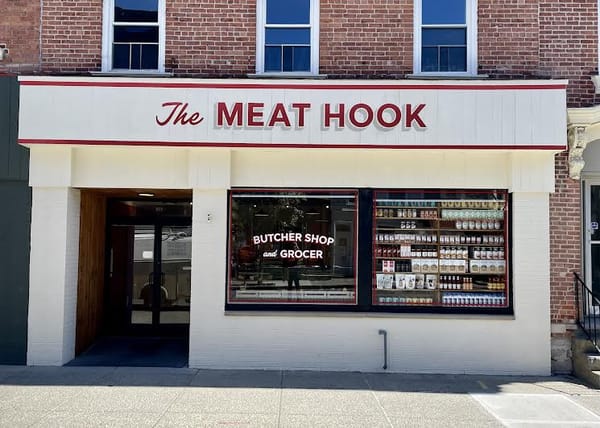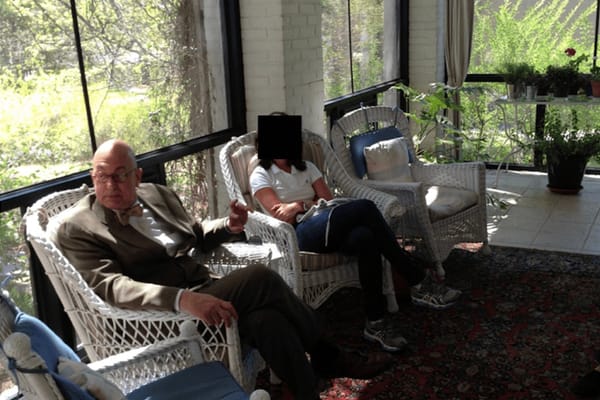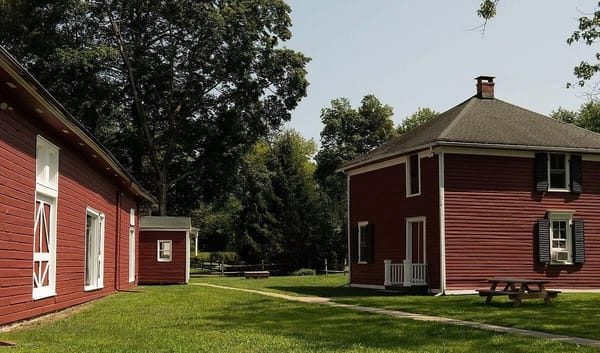AgriCulture bloggers Peter Davies and Mark Scherzer are the owners of Turkana Farms in Germantown, NY. This week Peter writes.
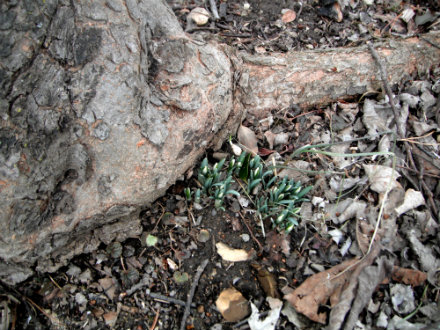
Spring, as they say, "is in the air." A few days ago was March 1st, St. David’s Day, one of the oldest harbinger’s of spring for me: It's the day that honors the patron saint of Wales, for which all little Welsh boys wear baby leeks on their lapels, and girls daffodils on their bodices. Wearing a leek to school on St David’s day was as close as I came to agriculture in those days, apart from the remote act of eating, of course. More to the present, there is a sudden increase in bird activity around the farm as they wing about all day establishing territorial rights and scoping out nest sites. Unfortunately, there is also the too-early morning arrival of a pair of Canadian geese on the pond outside my bedroom window, their loud gabbling cacophony signaling the beginning of our annual battle: trying to force the pair to move on elsewhere. No sign yet of the red winged blackbirds with their beautiful whistling call, usually amongst the early arrivals. And, of course there is the mud, eternal mud, mud squelching everywhere as we gingerly make our way, sinking and slipping, from house to coop, coop to barn, and barn to piggery. At this season our mud room fully lives up to its name. “Am I the only one around here that knows how to sweep?" I’ll soon be complaining.
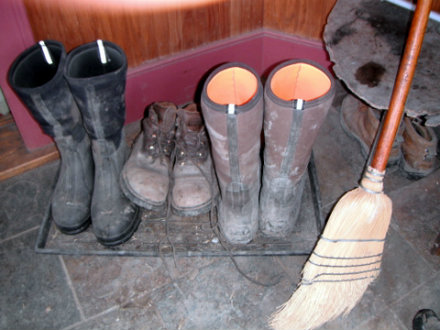
There are other signs too. Every day my trip to the mailbox brings seed and garden catalogs by the bunches: Fedco, our favorite, Burpee (our least favorite), The Cook’s Garden, Seeds of Change, Jung’s Seeds & Plants, Miller’s Nurseries, Burgess Seed & Plant Co., Harris’ Seeds, and on and on. They pile up untidily on my bookcase, some in duplicates and triplicates, defying my annual vow that I will not let the build-up lead to the usual clutter and chaos. I go to shop for groceries at Adams and am appalled to see a huge section of the store given over completely to seeds, bulbs, planting trays and cells, greenhouse lights, insecticides, pesticides, ceramic pots, garden tools, and every garden-related thing in the universe. “Too early," I find myself saying."Too early." I have the same feeling I have when weeks before Thanksgiving the same store section becomes a Christmas phantasmagoria of artificial trees, twinkling lights, shiny ornaments, tree stands, wreaths, and all manner of seasonal geegaws. “Too early. Too early." I realize, with very mixed feelings (I dearly want spring to come but am enjoying my winter hibernation) that, in spite of myself, it is time to sort out the chaos the greenhouse was left in when we moved all the seedlings out to the garden last spring. Yes, the planting tables need to be set up, the planting cells and trays organized, and the potting soil purchased. The plastic walls of the greenhouse walls need patching to keep in the sunlight’s heat for the cool nights to come. On inspection I see, fortunately, that the rat plague in the greenhouse has at last been eradicated, thanks to the diligence of Kyle, our new farm helper. Our rat problem had gotten so severe this winter that the parsley, cutting celery, chard, and lettuces we usually rely on throughout the winter were devoured as fast as they leafed out. But they are now slowly making a comeback. And our vegetable seedlings will be safe.
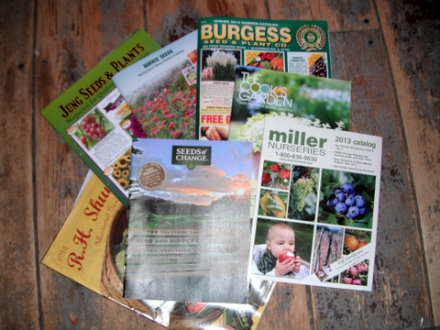
It is also time to send in our annual spring seed order, something Mark and I are supposed to do together, sitting for hours at the kitchen counter going painstakingly from item to item with somber deliberation: “Did this variety do well last year…do we want to repeat this…should we double our order on that?" Finally the order is ready to go, but Mark, unable to restrain himself, always goes sneakily beyond the jointly agreed on order and adds packets of this and that exotic seed — chervil, mache, and such, things that strike his fancy. It is the only excess he seems to indulge in. Consequently, we are never able to exhaust our seeds in a given season, and inevitably have a backlog of seeds the following spring, causing us to ask: “Will this germinate or not if we plant it?" A central issue in our seed order discussion this year will be how big do we want our garden to be? Getting through the hottest summer on record last year raised many issues. Do we, for instance, need to invest in a more elaborate irrigation system? The vegetable garden is one of the farm’s most labor intensive activities and, unfortunately, demands the most attention during the hottest months. Since we use no machinery or pesticides or herbicides, and take no short cuts and, therefore, require many hours of farm help to carry the burden, it is also one of our most expensive activities. As everyone warns “It’s hard to make money raising vegetables." We can’t argue with that. Last summer also signaled a decline in our vegetable customer base. Whether this was because of the economy or because buying vegetables directly from the farm was losing its novelty, we do not know. So we are seriously discussing how far with the vegetable garden beyond our own needs we wish to go. And so we are considering a plan that may help answer this question, somewhere between the way we have been operating up to now, which is that people order as they see fit by e-mail on a weekly basis, and pick up their vegetables at the farm or in the City or a CSA model. Somehow, given our responsibilities, we do not see ourselves taking on the elaborate organization and multifarious responsibilities involved in running a CSA. And we feel a lot of our customers, because they are not necessarily around every week, do not see the CSA arrangement as best serving their needs. We are therefore, asking those of our customers who are interested in receiving our produce this summer to indicate, as a vote of confidence, that they are willing to do so, by sending in a deposit. This deposit will serve as a standing credit that can be drawn on for getting vegetables and eggs throughout the growing season. We are hoping that the response we get to this appeal will serve as a useful indicator to us as to the scale of vegetable garden we’ll plan for this season. While farming is, perhaps, one of the most traditional of activities, it nevertheless requires constant innovation to stay abreast with the ever changing times.

